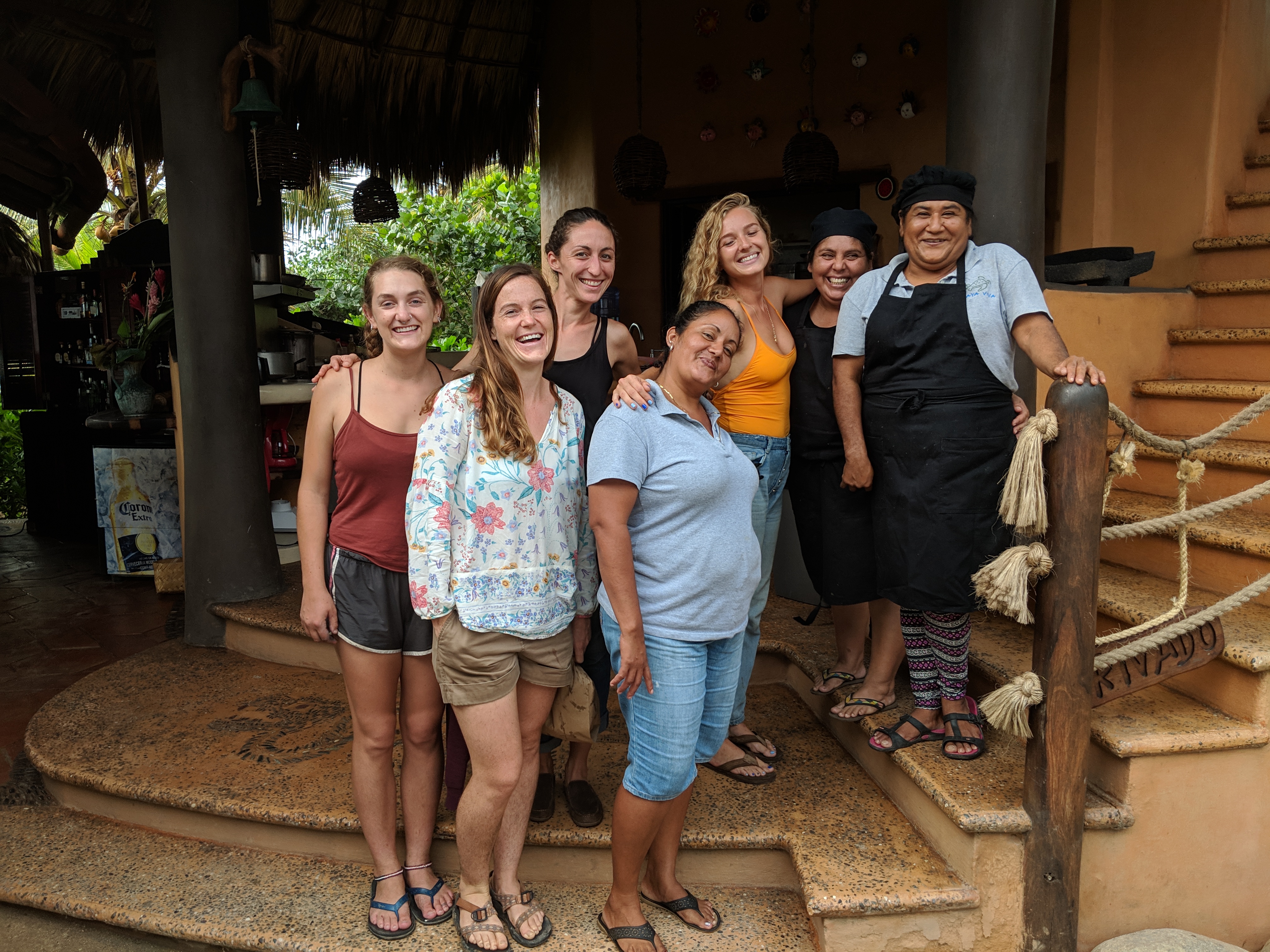Turtle Camp Volunteer Impact All-Star
Valentine Reiss-Woolever, or “Valentina” as she is known in Juluchuca, travelled across the world from Germany to our small town in Mexico to be our La Tortuga Viva sea turtle sanctuary coordinator for the 2018-2019 season. With seemingly endless energy, Valentine spearheaded numerous projects in the community, from sea turtle conservation and community engagement, to animal welfare and environmental education with youth. I sat down with Valentine before she left to talk about her experience at Playa Viva and life in Juluchuca.
Colleen Fugate: What was it like to work with La Tortuga Viva? What kind of projects did you help lead?
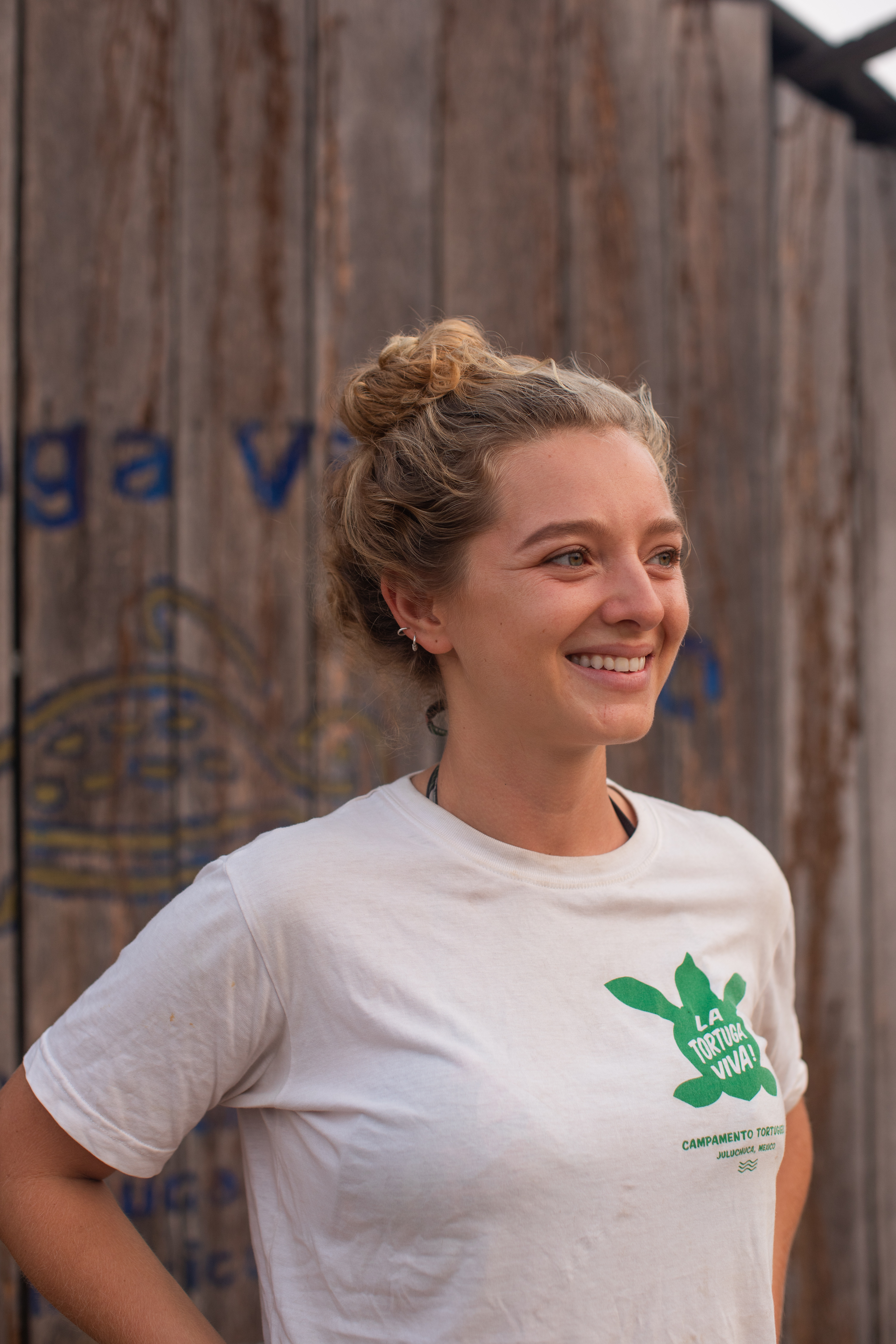
Valentine Reiss-Woolever: It was an incredible experience. Living in Juluchuca while working with La Tortuga Viva resulted in an immersive experience that taught me huge amounts both culturally and socially. I think it can be summarized with the word “convivir”, to share space and experience.
We increased guest interaction with the local turtle camp volunteers, through service projects, and by launching a new night beach patrol activity for guests where they can go out and look for turtle nests with the turtle camp volunteers. We also began an Adopt A Nest program where guests can sponsor the protection of a turtle nest, providing direct support for the work of the turtle camp volunteers even after leaving Playa Viva. Through those increased interactions, two seemingly different groups, Playa Viva guests and the volunteers of La Tortuga Viva had opportunities to “convivir”.
Our biggest project was done with 109 World, a group of engaged and globally minded individuals who not only fundraised to construct a new sanctuary, but actually built it with us! Working side by side, this project was incredibly important not only for our conservation work, but also as recognition for the LTV volunteers to understand the support and passion their work evokes. And we are all so excited to have 109 World coming back this coming December!
Colleen: How was your relationship with the guys from the turtle camp? What challenges did you face?
Valentina: The relationship with the group as a whole was sometimes tumultuous, but generally very positive. They’re such a fun and friendly group, making Sunday morning work in the camp actually quite enjoyable! But working with a male-led group in a male-dominated culture as a woman, especially as a foreign woman, was sometimes challenging.
It was initially difficult to be taken seriously, and I had to try to make my opinions valued, while not overstepping cultural boundaries. I had to prove that my values were aligned with theirs. The German in me is often too direct for the social norms here, so I had to tone that down a bit to not come across as “brava”, or too bold. I think after a few months both our differences and common ground were clear, and the volunteers are many of the people I will miss most in Mexico.
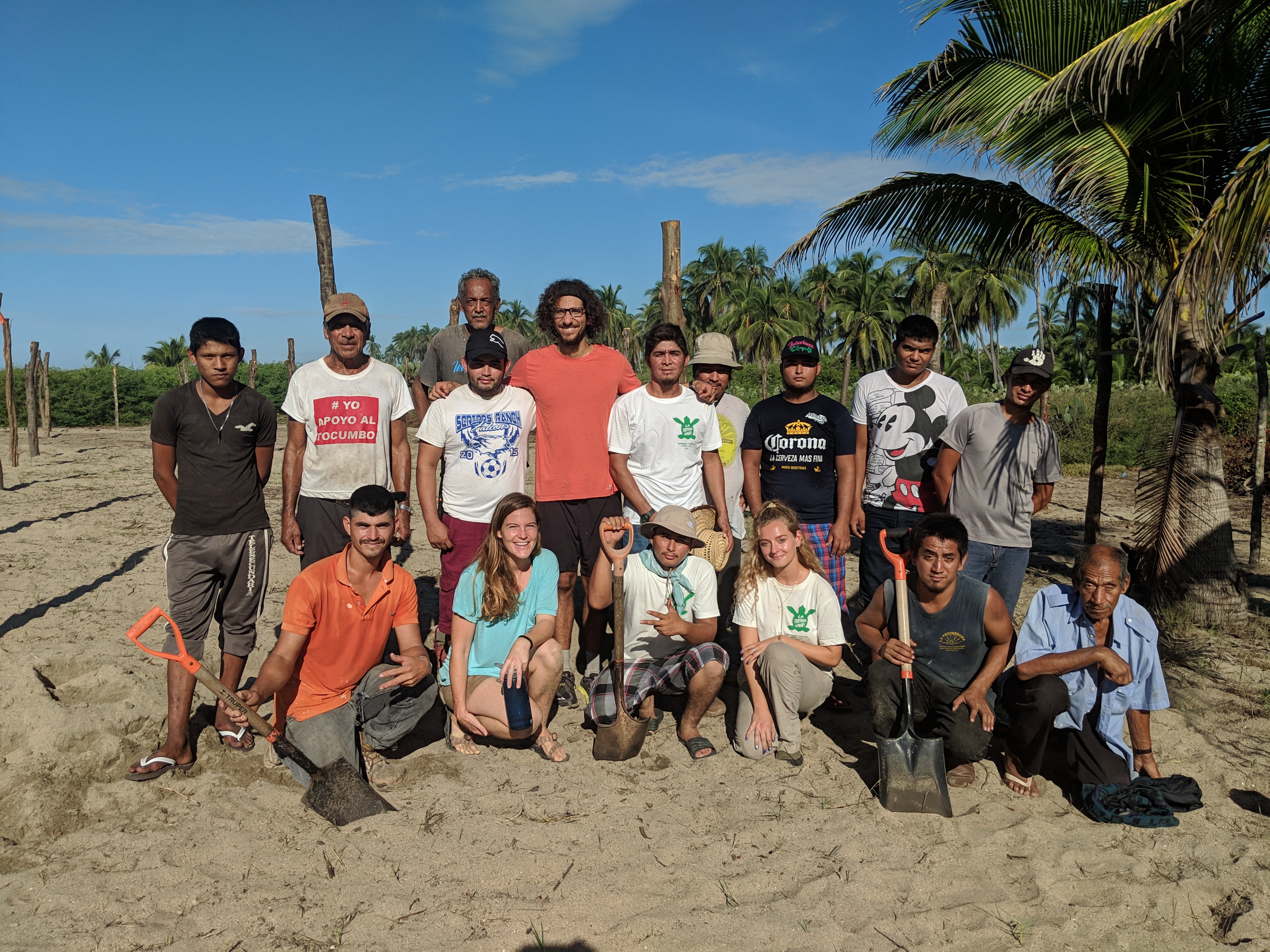
When I was leaving Juluchuca they organized my going away party and pooled their tips to pay for it. I don’t think they’ll ever fully know it, but I owe a huge amount of the personal growth I did this past year to them.
Colleen: Why is environmental education so important in a place like Juluchuca?
Valentina: First because the people in Juluchuca directly depend on their land, which is already facing environmental pressures, so they are among those who will suffer the most from environmental negligence. If they toss their chip wrappers on the ground and plastics fills the ocean, the fishing that they rely on is threatened. They’re already seeing dramatic effects of climate change with rain changes – people are having the travel miles away for water as wells go dry.
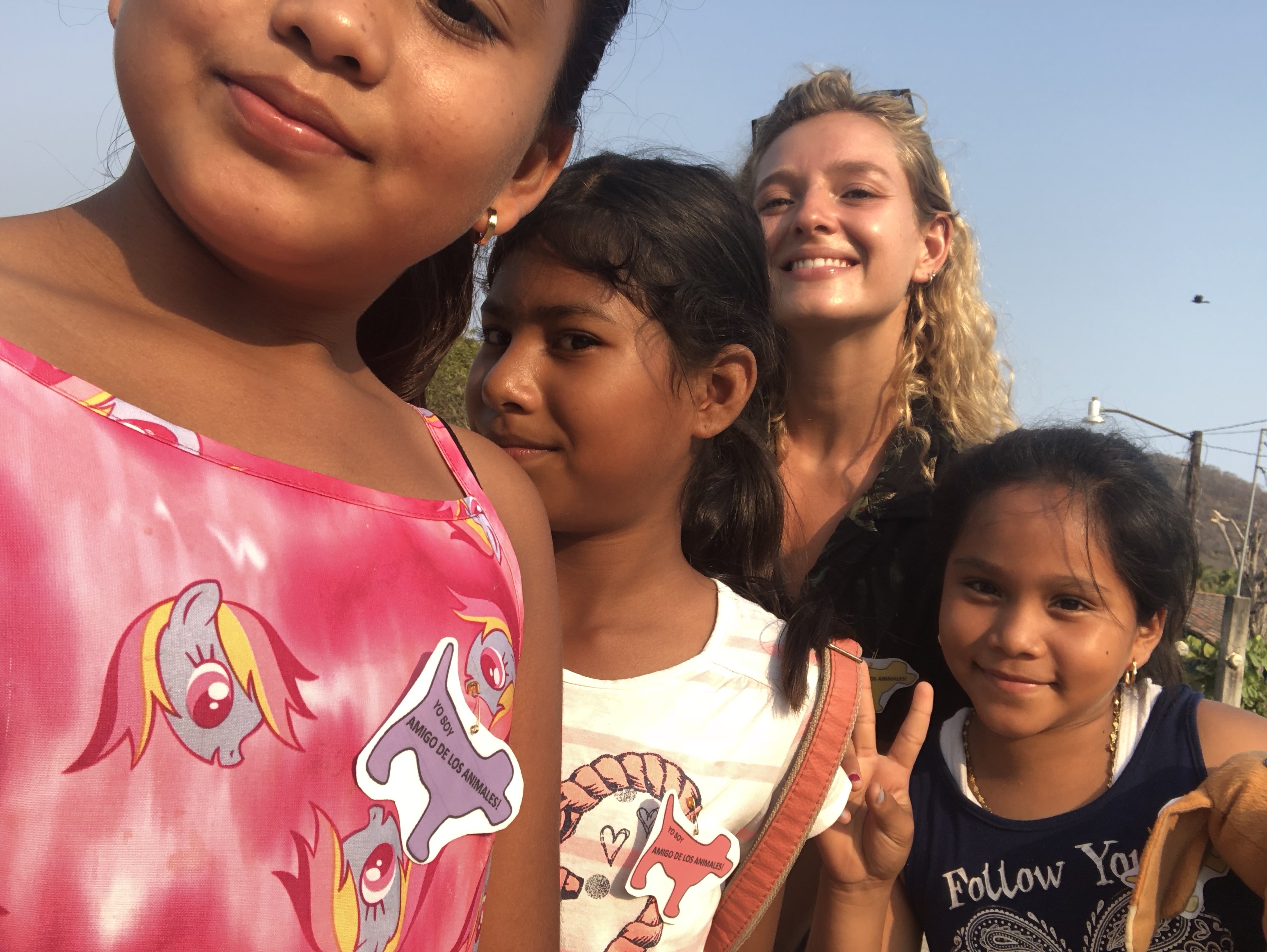
Colleen: You were a mentor to several girls in town. Could you describe that experience and what kind of impact you think it had?
Valentina: I think I was more of a friend than a mentor, and living in an isolated area, these relationships were as much to my benefit as theirs. As I stayed longer than other volunteers, these girls were one of the only consistencies in Juluchuca for me. I tried to manage my natural reaction to turn everything into a learning opportunity, and be a friend rather than lecturing them.
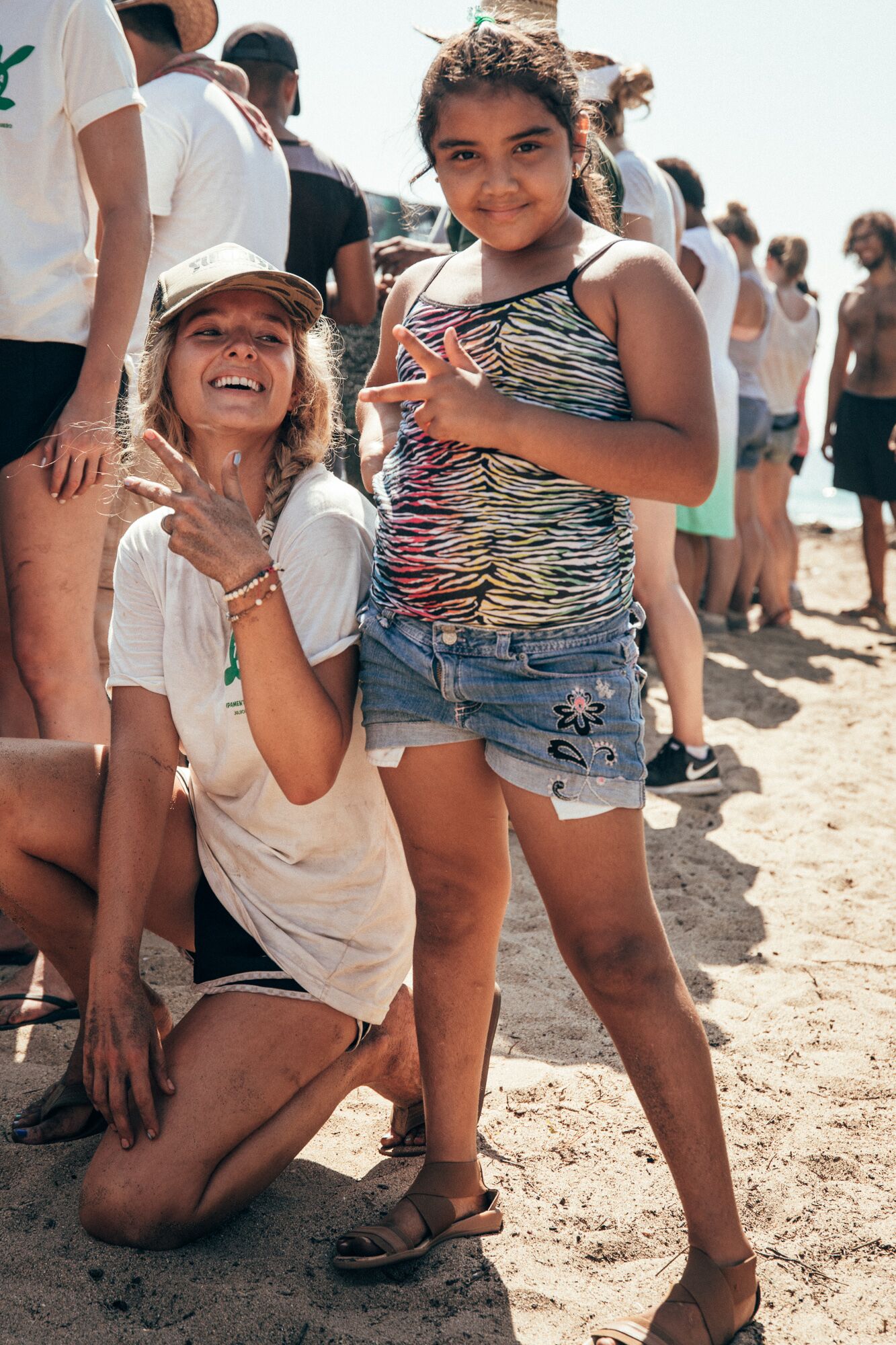
The difference from hanging out with kids back home in Europe is just the importance of positive role models in their lives. The things a lot of these girls have to consider at 13 (leaving school to work, pregnancy, etc.) is something irrelevant to most privileged youth I’ve been around. It was sometimes difficult to feel positive about the future for some of the young girls, but important to give them support and talk about these issues when they’re young.
As for impact, I think that we’re all affected by the people closest to us. I don’t think I made any drastic changes, but maybe helped plant a seed that will grow into a positive in the future. Or maybe just watered a seed a previous volunteer had planted.
Colleen: What is your fondest memory of living in Juluchuca?
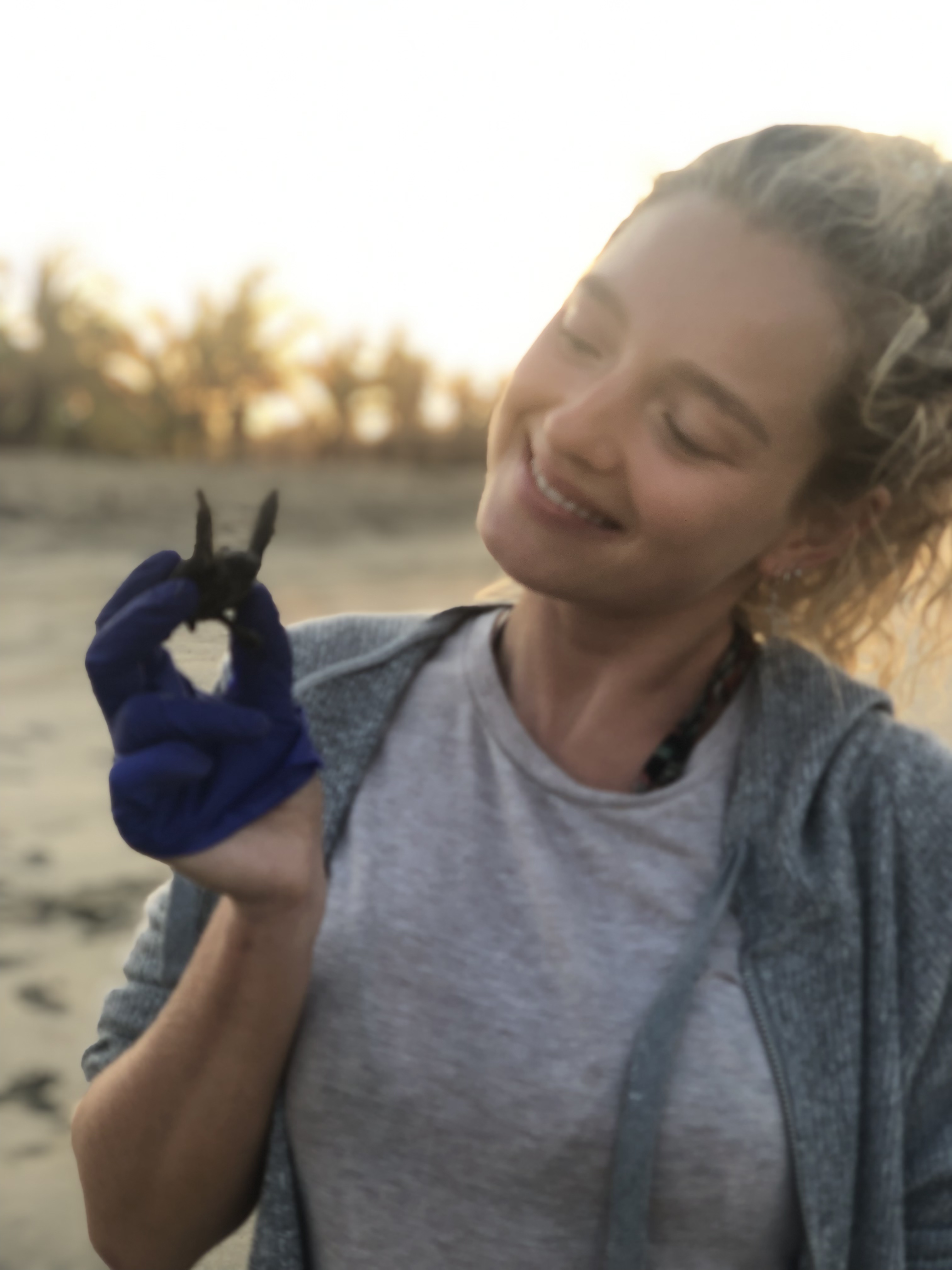
Also, I loved how people would just scream out “Valentina!!!” when they would see me down the street. No one here in Germany greets me with so much enthusiasm! It’s common to greet people by name instead of “hi”, and having the name of a popular salsa made it easier for people to remember.
Colleen: What do you hope for the community of Juluchuca over the next five years?
One of the things I learned most during my time was that the foundational issues are the same around the world. I hope Juluchuca ends the attitudes of apathy in its people, the same way I hope the public in the U.K or Germany or the States does. I hope the community empowers themselves and works actively towards the future they want for their pueblo, rather than waiting to be lifted out of a cycle. I hope they empower members of the community who are striving for more. Selfishly, I hope I’ll be there to see this all soon!
